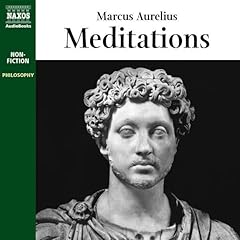
Thus Spoke Zarathustra
No se pudo agregar al carrito
Add to Cart failed.
Error al Agregar a Lista de Deseos.
Error al eliminar de la lista de deseos.
Error al añadir a tu biblioteca
Error al seguir el podcast
Error al dejar de seguir el podcast
 Exclusivo para miembros Prime: ¿Nuevo en Audible? Obtén 2 audiolibros gratis con tu prueba.
Exclusivo para miembros Prime: ¿Nuevo en Audible? Obtén 2 audiolibros gratis con tu prueba.Compra ahora por $15.90
-
Narrado por:
-
Alex Jennings
Also sprach Zarathustra was conceived and written by Friedrich Nietzsche during the years 1881-1885; the first three Parts were published in 1883 and 1884. The book formed part of his "campaign against morality", in which Nietzsche explored the ethical consequences of the "death of God".
Heavily critical not only of Christian values but also of their modern replacements, Thus Spoke Zarathustra argues for a new value-system based around the prophecy of the Ubermensch, or Superman. Its appropriation by the National Socialist movement in Germany early in the 20th century has tainted its reputation unjustly; but there are signs that the rehabilitation of Nietzsche, and of this, his most incendiary work, is almost complete.
The translation used in this audiobook is that of Thomas Common.
Download the accompanying reference guide.Public Domain (P)2005 Naxos AudioBooks Ltd.Los oyentes también disfrutaron:




















Las personas que vieron esto también vieron:










Beautiful
Se ha producido un error. Vuelve a intentarlo dentro de unos minutos.
Evoking the Eternal Return!
Se ha producido un error. Vuelve a intentarlo dentro de unos minutos.
Amazing!
Se ha producido un error. Vuelve a intentarlo dentro de unos minutos.
yes they have finally done it justice!
Se ha producido un error. Vuelve a intentarlo dentro de unos minutos.
OK, it's not _sneakily_ abridged
Se ha producido un error. Vuelve a intentarlo dentro de unos minutos.


